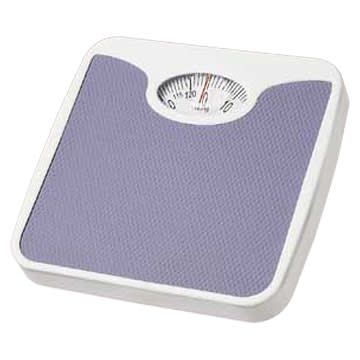The only way to really lose weight

Admittedly, I'm not a rocket scientist, but I was puzzled by a recent study in The New England Journal of Medicine which discovered that (prepare yourselves) ... eating less is what leads to weight loss! Yes, that's the sound of my jaw hitting the floor (not). My first thought was: They needed a study to prove this? They could have saved some money by hanging out with me for a week, noting how the needle on my bathroom scale rose in correlation to the number of chocolate bars I scarfed. But my second thought was: OK, they're scientists, they must be on to something.
Doing only one thing differently can be all it takes to lose weight and improve your life in surprising, healthy ways. One woman lost 130 pounds!
So I read the study myself to see if I was missing something here (OK, I skimmed it, but still). The discovery lies not so much in the end result-that nearly everyone in the study lost the same amount of weight and kept a lot of it off for 2 years--but the means: Each group was assigned a different percentage makeup of carbs, protein, and fat. For example, one group was eating 15% protein, another group 25% protein (and they were all required to shave 750 calories off their normal intake--so someone eating 2500 cals daily had to drop to 1750) . The fact that they all lost about the same amount of weight casts doubt on the idea that your meals need to be made up of a particular percentage of protein or carbs or fat in order to slim down.
Try these treats when you get a craving. They're better for you but still tasty enough to satisfy.
In my book, that's actually good news. What it says is that you can adapt your diet to your own likes and dislikes and, as long as you're eating relatively healthy foods and keeping portions sane, you can lose weight. The one-size-fits-all model of weight loss is out the window. No need to get out a spreadsheet to track your meals and design a diet--just follow your tastebuds, your hunger signals (i need protein at every meal, for example, to stay full for a few hours) and stick to healthy-living principles. If you DO want to follow a plan, however, go for it. Some of us do well with specific guidelines, some of us rebel against them (I count myself in the latter bunch). It's all about what works for you.
So ... what does work for you? Are you a rule-follower? Do you wing it? Do you model yourself after a healthy friend or relative? Let me know! --Tula Karras
Related: 20 superfoods for weight loss!
MORE FROM SELF:
